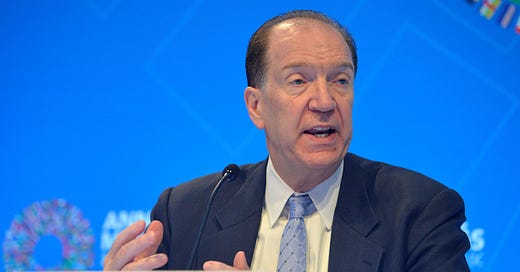5 Reasons Why a Global Recession Is Inevitable for the President of the World Bank.
It's only a matter of time, according to David Malpass.
Speaking at the US Chamber of Commerce in late May 2022, World Bank President David Malpass was not very optimistic about the global economy in the months ahead:
“If you look at global GDP, it's hard to see how we could avoid a recession.”
While David Malpass does not indicate when global GDP will start to decline, he does point out the obvious reasons th…
Keep reading with a 7-day free trial
Subscribe to Sylvain Saurel’s Newsletter to keep reading this post and get 7 days of free access to the full post archives.




